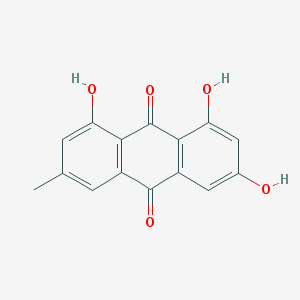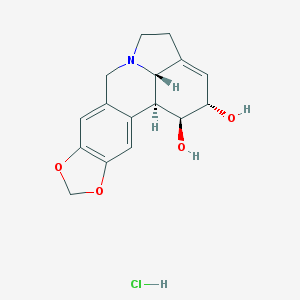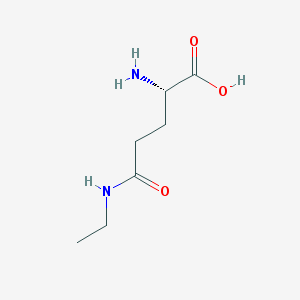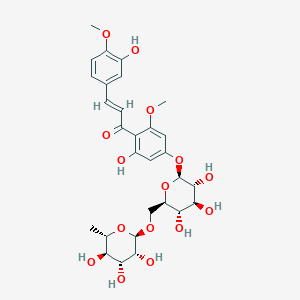Description
Emodin is a natural anthraquinone compound that is found in several plants, including the roots and rhizomes of the Rheum palmatum and Polygonum cuspidatum (Japanese knotweed). It has been used for centuries in traditional Chinese medicine for its various health benefits.
Emodin has been studied for its potential anti-inflammatory, antioxidant, and anticancer effects. It has been shown to inhibit the activity of several pro-inflammatory molecules, including cytokines, and to reduce oxidative stress by scavenging free radicals. These properties make it a promising compound for the treatment of various inflammatory conditions, such as arthritis, and for the prevention of chronic diseases, such as cardiovascular disease and cancer.
Here are some of its main benefits and applications:
- Laxative Properties: Emodin has long been recognized for its laxative effects. It is often used in small doses in traditional medicine to treat constipation, as it can stimulate bowel movements.
- Anti-inflammatory Effects: Some studies suggest that emodin may have anti-inflammatory properties. This could make it useful in the treatment of conditions characterized by inflammation.
- Antibacterial and Antiviral Properties: Emodin has shown potential in fighting against certain bacteria and viruses, indicating its potential use in treating infections.
- Anticancer Potential: Research indicates that emodin might have a role in cancer therapy. It has been observed to inhibit the growth of certain cancer cells in laboratory studies.
- Antioxidant Activity: Like many natural compounds, emodin possesses antioxidant properties, which means it can help in neutralizing harmful free radicals in the body.
- Application in Traditional Medicine: In traditional Chinese and Ayurvedic medicine, emodin has been used to treat a variety of ailments, including digestive issues, skin conditions, and liver diseases.
- Use in Research and Drug Development: Emodin is also used in scientific research, particularly in studying its potential applications in medicine and its mechanisms of action.





